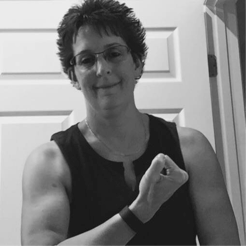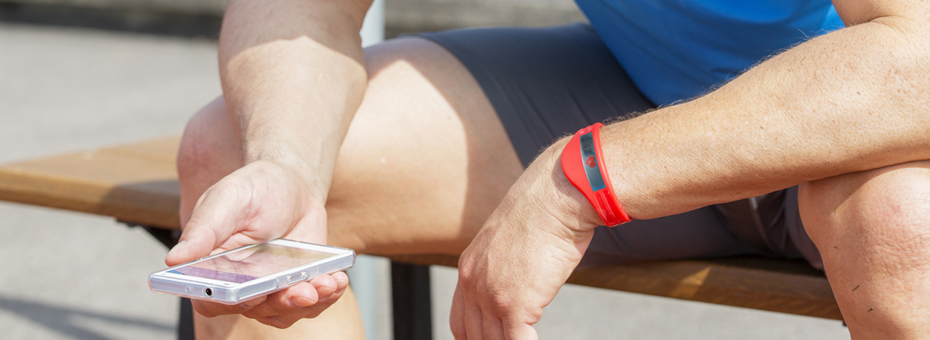I often find it difficult to maintain a healthy diet and lifestyle with my travel schedule these days. When my husband and I are home, it’s much easier to follow the standardization techniques we’ve created for ourselves with regard to meal choices and exercise. Similar to lean thinking and practice, it’s a choice we’ve made to create a “business” lifestyle. We’ve decided how it is that we want to think about our health, just as how at work, a team will decide how they want to think as an organization about their business.
I remind myself that I become healthier by following the same attention to process with personal health as I do when applying Lean, which is mostly about understanding mindset and how to measure success. Am I focusing on process or results? If I want to lose weight, for example, when I step on the scale, what I’m looking at is simply a “lagging indicator”. It’s what I do next in terms of process that determines the result of what the scale will tell me the next time I jump on.
As I try to be proactive about my health, I find social media, technology, and apps to be helpful in this regard. Whether you have them or not, you’re probably aware of the Fitbits, Jawbone 24s, and countless other models out there that help us track data about ourselves and the choices we make on an hourly basis. Many of these apps have the Plan-Do-Check-Act (PDCA) process embedded within them if you look deeply.
When I look over my personal current state (grasp the situation), and see how am I doing against the standards I have set, it takes me back to my production days at Toyota when I had to track hour by hour where my team and I were against the standards we set as well. It’s fascinating to me how in depth you can get with your own behaviors if you are willing to track them. Some people are reluctant to do this because it may tell them something they aren’t ready to hear.
Take Fitbit, for example. (I’ve used three different apps to find the right one for me, comparing the different measurements offered to customers). If you are willing to play along, it will ask you to set standards for yourself so in a sense it’s allowing you to set you own takt time with the hopes that kaizen will be applied when those standards are met, raising your own bar. You can track and set goals for:
 Steps in a day (miles walked/ran)
Steps in a day (miles walked/ran)- Sleep (awake, light deep)
- Water intake
- Calorie intake
- Calories burned
- Food categories
- Floors climbed (stairs- elevation)
- Heart Rate (resting and during a workout)
- Active Time
- Weight (Current and target)
Think about it… within an organization we are always looking for process indicators to be more predictive to our outputs. Most organizations track lagging, results-oriented indicators. This means we are reacting to results that happened months ago. But are we able to make changes to that process that took place 3 months ago? What we really want to do is search to find the leading indicators to make change in the present before it ends up on the lagging report.
The parallel I see with lean thinking and personal health decisions is about how we look at what we do. We have the ability to make change each day/hour in order to meet our goals. For example, if it’s 12pm and I only have 1,500 of my 8,000 steps allotted for my day, then I know I must change my process in order to meet the standard. The same goes for calorie intake. If my goal is 1,500 calories a day and I went to Cracker Barrel and had “Uncle Hershel’s breakfast”… then I may be way off my calorie ratio for the day! So what does this tell me? If I want to try to meet my standards, I must exercise or reduce my calorie intake for the rest of the day.
Health isn’t about always being perfect. Just like in our organizations, we all have imperfect days. It’s how we change our process to meet expectations that is important. We all want to be able to have a nice dessert or treat from time to time… we deserve it, right? We just have to understand moderation. Just like in an organization, we don’t try to implement every improvement we want to make or new activity or behavior at once. It’s a process of changing our daily habits, changing how we think, and working toward the milestones we set in order to create new ones.
The other thing I like about Fitbits or Nike Run apps is the friendly competition they create among “friend” networks! If I see my friends are walking more steps than me, it’s an internal motivator to keep up or even do better. We all have some level of that competitive gene! For me, I’ll do whatever it takes to find fun in healthy practices and share them with others. In our business life, our “friends” are our competitors and we should always try to stay one step ahead of them to keep them in the rear view mirror. Just as apps show our competitive side, in business healthy competition can lead us to improve our processes for better profits and long-term sustainability. I personally love seeing the way lean thinking and practice translates in everyday life The more we can see it in our own lives, the easier it is to get buy in in our workplace. This is the same thinking we want in our work lives, whether we lead or are the ones doing the work.
So challenge yourself to see the PDCA that is all around you in this new, technologically advanced world. I try not only to build muscle for the purpose of my own personal health, but to flex my problem solving muscles as well. It’s all about finding ways to translate personal behaviors into different choices – at work and at home. Always, focus on making sure you #movetheneedle!






